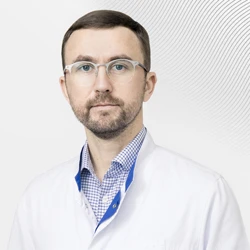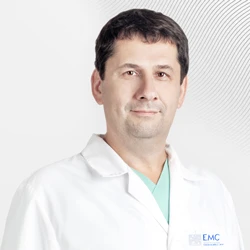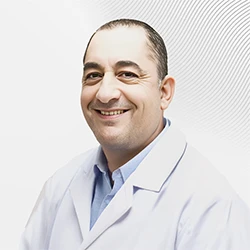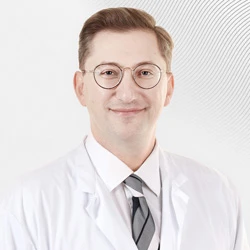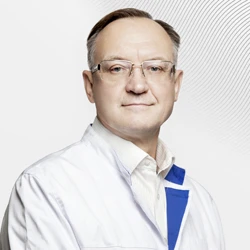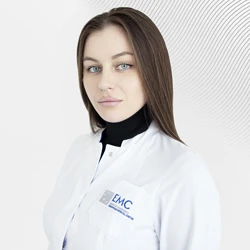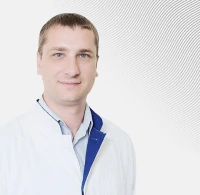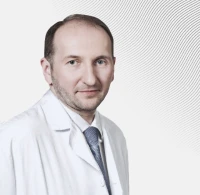Alzheimer's disease
 Probably, everyone in his life has heard more than once the last name of the German doctor Alois Alzheimer, when it came to forgetfulness. But can forgetfulness be a signal of impending ill—being — dementia - a state of disintegration of thinking, memory, cognition and learning abilities?
Probably, everyone in his life has heard more than once the last name of the German doctor Alois Alzheimer, when it came to forgetfulness. But can forgetfulness be a signal of impending ill—being — dementia - a state of disintegration of thinking, memory, cognition and learning abilities?
Risk factors
The risk of getting sick is twice as high if one of the parents contracted Alzheimer's disease before the age of 80. The genes responsible for a rare (there are only a few hundred such families in the world) familial hereditary form of the disease with early onset (this is 1% of cases with onset before the age of 65) have also been identified. A gene has been identified, the presence of which in chromosome 19 significantly increases the risk of developing the disease (the apolipoprotein E4 gene). The chances of developing Alzheimer's disease are also affected by a combination of diabetes, smoking, high blood pressure, and coronary heart disease. The more factors are present at the same time, the higher the risks.
Depression is also a proven risk factor, including because it can be one of the early manifestations of Alzheimer's disease. Depression should be manifested as a disease, and not just as a period of bad mood, which happens to all people without exception.
Symptoms
Alzheimer's disease is a disease of the elderly and senile age. The first signs of this disease appear after 65-70 years of age.
A key link in the development of Alzheimer's disease is a metabolic disorder of the amyloid precursor protein. When this protein is genetically defective or the enzyme systems that break it down are defective, fragments are deposited in brain tissues. The result is damage and death of brain cells. Until the critical level of atrophy of some parts of the brain is reached, the disease proceeds latently. Further, disorders of higher brain functions become noticeable and gradually progress. Usually, the memory of recent events is disrupted early, and relatives have to re-tell conversations and events that happened a few days ago. In the early stages, it may be difficult to navigate in space, less organized when performing household and everyday tasks.
Doctors identify a special condition — moderate cognitive impairment. Higher brain functions in this condition are somewhat worse than the age norm, but they do not reach the level of dementia, that is, a person does not have unsolvable difficulties in daily life and activity restrictions. In this case, it is recommended to undergo neuropsychological testing to confirm or deny the fact of violations of higher brain functions, and then conduct it every year in order to notice a possible deterioration in time. Since there are many causes for mild cognitive impairment and dementia, in addition to Alzheimer's disease, neurologists collect detailed information about the patient, prescribe an MRI scan of the brain, a study of the level of thyroid hormones, vitamin B12 in the blood. Forgetfulness, difficulty concentrating, and feelings of fog in the head often accompany depression and anxiety disorders, and sometimes are the only symptoms of these conditions noticeable to the patient. Therefore, neurologists often involve fellow psychiatrists for accurate diagnosis. All this complex of examinations can help to detect reversible, well-treatable disorders.
What is recommended for patients with moderate cognitive impairment or people at risk of developing dementia?
-
Maintain a high level of physical activity if there are no contraindications.
-
Maintain communication, social interaction, and choose intellectual activities and leisure activities for as long as possible.
-
It has been proven that following doctors' recommendations for the treatment of cardiovascular diseases, especially for the treatment of hypertension, improves the prognosis for higher brain functions.
-
The well-known Mediterranean diet with a high content of vegetables, fruits, whole grains, seeds, nuts and a predominance of vegetable oils, mainly olive oil, is useful for the prevention of dementia.
It is worth paying attention to the fact that there are no medications in the list of recommendations. All the studies conducted on the prevention of dementia evaluating the effectiveness of vitamins, statins, dietary supplements, hormone replacement therapy and other drugs have not been successful.
Diagnostics
What should I do if I suspect my parents or other relatives have Alzheimer's disease?
If the syndrome of memory impairments for recent events, difficulties in choosing words, problems with paying bills or controlling expenses, and disorientation in familiar terrain have become clearly noticeable to others, then this is really a reason to suspect the initial manifestations of Alzheimer's disease. In this case, the neurologist at the reception will test higher brain functions on special scales and suggest supplementing it with a full-fledged neuropsychological study. Examinations will be mandatory to rule out other causes of dementia, especially those that require other treatment or may be reversible (for example, normotensive hydrocephalus). Therefore, you may also need a general blood test, the level of vitamin B12, thyroid hormones, reactions to HIV and syphilis in the blood, positron emission tomography or single photon emission tomography (SPECT). In complex atypical cases, it may be necessary to study biomarkers in the cerebrospinal fluid, to study the level of apolipiprotein-E and apolipoprotein-Ee4 in the blood. If a rare family form is suspected, genetic testing is performed for mutations in the presenilin 1 and 2 protein genes.
A full-fledged examination for suspected Alzheimer's disease can be performed at the Neurology Clinic of the European Medical Center in Moscow.
Treatment
Currently, no treatment has been developed that can reliably stop or reverse the process of amyloid deposition in Alzheimer's disease. Life expectancy after diagnosis of Alzheimer's disease varies from 3 to 11 years. Modern basic treatment makes it possible to compensate for acetylcholine deficiency in the brain (with drugs donepezil, rivastigmine, galantamine) and protect neurons from further damage in the severe stage (with memantine). Drugs must be taken constantly for a long time, the usual treatment for many courses is ineffective and only discredits drugs.
What should be the realistic expectations of treatment? Treatment allows patients to remain independent in daily life longer, to suspend and slow down the rate of decay of higher brain functions. The constant intake of basic medications reduces the risk of death by 38% over the next 5 years, slows down the rate of progression by 30%. If we put these statistical calculations into practice, then this slowdown gives an additional 2 to 5 months of relatively stable condition per year. That is, the earlier treatment with basic drugs is started, the better the initial level of memory, attention, orientation, and thinking, the longer the patient's period of independence in everyday life will be.
Additional measures to help patients may include: taking vitamin E, correcting concomitant treatment (withdrawal or replacement of drugs that worsen memory impairment), antidepressants, ensuring patient safety (including monitoring food intake and medications), special medical nutrition, occupational therapy, physical activity, and treatment of sleep disorders.
As Alzheimer's disease progresses, the ability to think decreases, and behavior becomes more and more impaired. A person can become very passive and will need help with self-care and hygiene. Hallucinations and aggression may occur. Antipsychotic medications may be required at this stage.
The relatives of patients with Alzheimer's disease bear a huge, exorbitant emotional and physical burden. In the EMC Neurology Clinic you can get full-fledged help and detailed recommendations on all aspects of the disease.
Why the EMC
The first and only clinic in Russia, created in the image of the world's leading clinics
EMC is a multidisciplinary center offering patients a high level of medical services and a personalized approach
Worldwide recognition and awards
 Learn more
Learn more
Worldwide recognition and awards
 Certificates and licenses
Certificates and licenses
Make an appointment for a consultation
Specify your contacts and we will contact you to clarify the details
Reviews
and new products of the EMC

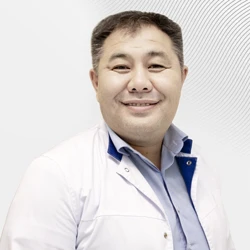
.webp)
